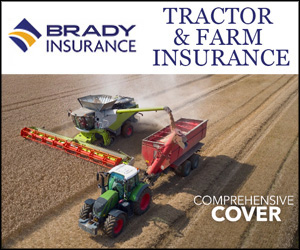12/02/2004
Shoppers still being misled by food labels, says FSA
Shoppers are still being misled by the use of terms such as ‘fresh’, 'natural', ‘farmhouse’ and ‘traditional’ on some food labels, according to a nationwide survey carried out for the Food Standards Agency (FSA).
The agency found that the labelling on almost half of the samples taken during the survey (40%) were considered to be misleading or ambiguous.
A total of 220 foods were examined and the results show some continuing problems with the use of all eight terms.
The two descriptive terms where misuse was most widespread were ‘farmhouse’ and ‘traditional’.
The guidance for the term ‘farmhouse’ states that this should only be used where the product has been made in a house on a farm, or more specifically in the main dwelling of the farmer himself. Of the food samples examined, 24 used the ‘farmhouse’ term but in 18 of the cases (75%) there was clear evidence, or indications, that they were actually produced in industrial premises.
The word ‘traditional’ was also widely used on the labels of the foods sampled. Of the 75 in this category more than one third (33 samples) didn’t follow the guidance. Of the samples that called themselves ‘traditional’, 31 used modern ingredients such as artificial additives, preservatives or sweeteners, which the public analysts did not consider would have been part of the original recipe.
In July 2002, the agency issued advice on the use of eight marketing terms currently used on food labels in the UK: ‘fresh’; ‘pure’; ‘natural’; ‘traditional’; ‘original’; ‘authentic’; ‘home made’ and ‘farmhouse’. This guidance described when and how these terms should be used to ensure that consumers are not misled.
To check the extent to which the guidance is currently being followed, last summer the agency enlisted the help of enforcement officers from 15 local authorities across the UK.
They were asked to begin collecting from their areas food samples that used one or more of the terms, and to establish whether the labelling used on the products followed the agency's guidance. The findings were later assessed by a number of public analysts.
(gmcg)
The agency found that the labelling on almost half of the samples taken during the survey (40%) were considered to be misleading or ambiguous.
A total of 220 foods were examined and the results show some continuing problems with the use of all eight terms.
The two descriptive terms where misuse was most widespread were ‘farmhouse’ and ‘traditional’.
The guidance for the term ‘farmhouse’ states that this should only be used where the product has been made in a house on a farm, or more specifically in the main dwelling of the farmer himself. Of the food samples examined, 24 used the ‘farmhouse’ term but in 18 of the cases (75%) there was clear evidence, or indications, that they were actually produced in industrial premises.
The word ‘traditional’ was also widely used on the labels of the foods sampled. Of the 75 in this category more than one third (33 samples) didn’t follow the guidance. Of the samples that called themselves ‘traditional’, 31 used modern ingredients such as artificial additives, preservatives or sweeteners, which the public analysts did not consider would have been part of the original recipe.
In July 2002, the agency issued advice on the use of eight marketing terms currently used on food labels in the UK: ‘fresh’; ‘pure’; ‘natural’; ‘traditional’; ‘original’; ‘authentic’; ‘home made’ and ‘farmhouse’. This guidance described when and how these terms should be used to ensure that consumers are not misled.
To check the extent to which the guidance is currently being followed, last summer the agency enlisted the help of enforcement officers from 15 local authorities across the UK.
They were asked to begin collecting from their areas food samples that used one or more of the terms, and to establish whether the labelling used on the products followed the agency's guidance. The findings were later assessed by a number of public analysts.
(gmcg)
Related UK National News Stories
Click here for the latest headlines.
28 March 2008
School's Out For Junk Food
The School Food Trust is to set in motion measures that will curb school children binging on junk food. Currently in some parts of England, pupils have a choice of more than 40 fast food shops, with many targeting children with special lunch menus.
School's Out For Junk Food
The School Food Trust is to set in motion measures that will curb school children binging on junk food. Currently in some parts of England, pupils have a choice of more than 40 fast food shops, with many targeting children with special lunch menus.
06 October 2008
New Council of Food Policy Advisors Announced
The establishment of a new team of advisers on food policy from 'the farm to the fork' has been announced today by Hilary Benn, Secretary of State for the Environment, Food, and Rural Affairs.
New Council of Food Policy Advisors Announced
The establishment of a new team of advisers on food policy from 'the farm to the fork' has been announced today by Hilary Benn, Secretary of State for the Environment, Food, and Rural Affairs.
18 April 2008
Calls For Tougher Junk Food Advertising Laws
More than eighty percent of adults believe junk food advertising can make it difficult to feed children healthy food, a new survey has claimed. Consumer watchdog Which? Found 83% of consumers surveyed wanted the government to become more involved in controlling the marketing of unhealthy food to children. In total 2,000 people were questioned.
Calls For Tougher Junk Food Advertising Laws
More than eighty percent of adults believe junk food advertising can make it difficult to feed children healthy food, a new survey has claimed. Consumer watchdog Which? Found 83% of consumers surveyed wanted the government to become more involved in controlling the marketing of unhealthy food to children. In total 2,000 people were questioned.
25 October 2004
Tourists warned of risks of bringing food into the UK
The risks and controls prohibiting people bringing food into the UK from EU countries have been highlighted today as part of a public awareness campaign launched today. The current rules mean that it is illegal to bring meat and milk-based products for personal use back into the UK from outside the EU.
Tourists warned of risks of bringing food into the UK
The risks and controls prohibiting people bringing food into the UK from EU countries have been highlighted today as part of a public awareness campaign launched today. The current rules mean that it is illegal to bring meat and milk-based products for personal use back into the UK from outside the EU.
29 October 2003
New proposals set to curb fast-food littering
Fast-food outlets and customers will be encouraged to clean up their act under voluntary proposals published today by the government.
New proposals set to curb fast-food littering
Fast-food outlets and customers will be encouraged to clean up their act under voluntary proposals published today by the government.
-
Northern Ireland WeatherToday:There will be a mixture of bright intervals and a few showers. Best of the sunny spells will be near the North Coast. Feeling on the cool side. Maximum temperature 10 °C.Tonight:Showers will gradually die out during the evening. A cold night with long clear spells leading to a touch of frost in places. Minimum temperature 0 °C.








